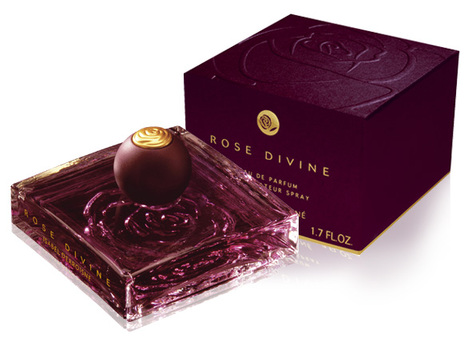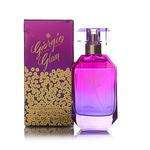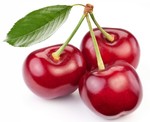Isabel Derroisné Rose Divine (2006): A Gourmand Rose Au Naturel {Perfume Review} {Smell-The-Roses-Till-Valentine's Day Challenge - Day 3}

Rose Divine was launched by Isabel Derroisné in the summer of 2006. Its perfumer is Céline Ellena, the daughter of Jean-Claude Ellena. She is known for fragrances created under the label of The Different Company, a niche perfume house where she succeeded her father after he was recruited to be the in-house perfumer of Hermès. She has already proposed Sel de Vétiver, Jasmin de Nuit, and a trio of scents inspired by gardens. Rose Divine represents thus an incursion outside of her familial territory and an opportunity for her to work on a perfume that will reach a different public, a slightly more commercial one. Being herself from the Grasse region, she would have been familiarized from an early age with the scent of the Rosa Centifolia whose absolute is used in this perfume in generous proportions, 1 %.
Rose Divine will have to dispute the honor with Thierry Mugler Rose Angel of being considered the first gourmand rose perfume ever created as Pierre Aulas, the olfactive artistic of Thierry Mugler, claims that Rose Angel, composed by Olivier Cresp, is the first gourmand rose scent ever to have seen the light of day. Both creations came out in 2006. Interestingly, each of these scents illustrate a similar category with one of the two roses used in perfumery, Rosa Centifolia for Rose Divine and Bulgarian rose for Rose Angel.....
Rose Divine goes through well delineated metamorphoses while showcasing a very fresh, persistent, and natural rose note that ends up having the last word; the next day it has outlived all the other notes in the perfume and the scent lets out its core soliflore nature.
The opening of Rose Divine is fresh, sparkling, a little shadowy, and subtly leafy-green with minty and grassy nuances. The scent then develops into a rounder, slightly creamier texture all the while keeping a juicy, fruity counterpoint that evokes blackcurrant with streaks of wine-like impressions all imprisoned in a light amber-y body like those Baltic amber chunks that have kept external vegetal residues preserved in them. The contrast between some fresh greenness and warm amberiness that remain distinct instead of being blended beyond recognition is marked.
The heart of the perfume rests upon a gourmand near-edible almond-y macaroon accord that is very realistic -- the glacé surfaces of the macaroon seem palpable and appear to be beige or a light brown color. It blends effortlessly with the rest of the composition adding a little whimsical touch of self-indulgence. Mmm, now one gets a distinct impression of fresh raspberry coulis having been sandwiched in between the two halves of the "macaron". It feels gourmand without being prosaically food-y. Some sparkling aldehydic notes of champagne evoke the ideal companion drink to the macaroon. A discreet nutty powdery sharpness emerges and accents an otherwise light aqueous velvety texture. As the scent progresses it lets out more "character" such as spicy, peppery nuances and a sensation of controlled aldehydic roughness which becomes more prominent, turning the gentle gourmand scent into a more womanly signature sillage with nuances of rose lipstick. One can almost hear the sound of a compact closing with decisiveness at a café terrace. The goûter is finished, both lipstick and powder have been reapplied. It is time to kill a few men. The dry-down is of a powdery and sharp vanillic and amber-y rose with sugary tea and cosmetic facets. The musks and sandalwood/incense create an impression of feminine sensuality and willfulness at the same time, evoking a seductress in stiletto heels.
We have evoked before an olfactive signature that feels like the scent of the middle class. This is one of the illustrations we had in mind. It might be due to the use of certain aldehydes combined with certain musks.
Top notes: aldehydes -- Heart notes: Grasse Rosa Centifolia -- Base notes: vanilla, incense
You can read our review of Ilaya by Isabel Derroisné
References: Isabel Derroisné, L'Express 04/23/2007, TSS.










The description of Rose Divine is very appealing, and it sounds as if it ought to be sniffed, at the very least.
I'm puzzled by why it would be " the scent of the middle class"-
Why the scent of any class at all ?
If it smells good, and compliments the wearer, and delights those who inhale it-
That sounds perfectly appropriate for anyone.
Chaya,
What I mean by that is that if you accept the idea that a perfume can be characterized as being luxurious, rich, sophisticated, elegant, refined, then you are probably using class representations when you do that. Yes, perfume is one of the most affordable forms of luxury so this is why it will cut across economic classes like certain other commodities can't do, say diamonds in bulk. Someone from the middle class can have several hundreds perfumes, it is less likely that they will be able to afford several hundreds diamonds. I did not mean to say "the scent of the middle class" in reference to a -- stereotypically put -- rigid hierarchical caste system. I mean by that, that certain ranges of products are scented a certain way -- a bit cheap perhaps -- and if you consistently find that they are bought more easily by a certain economic class or that marketeers target a certain economic class, then they will connote more of that economic class. One can then get attached to certain scent combos like some people prefer canned vegetables to fresh ones because they were raised on the first ones, or white Wonder bread vs. gourmet bread.
Where can I try/buy this perfume?
It's tricky if you're not in France or have a buddy there. It would be great if they could widen their distribution but actually they have done the reverse by leaving the German market.
I have been purchasing Lettre a Ana perfume from Dr Pierre Ricaud for a long time but now they say it is out of stock. Where can I purchase a bottle please?
On auction sites